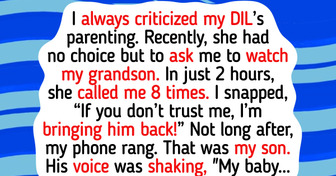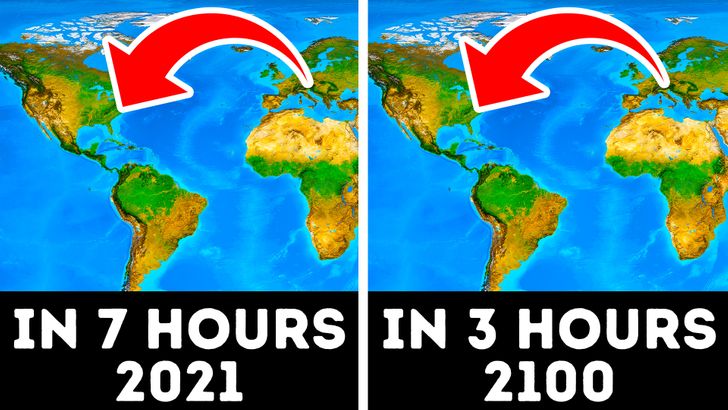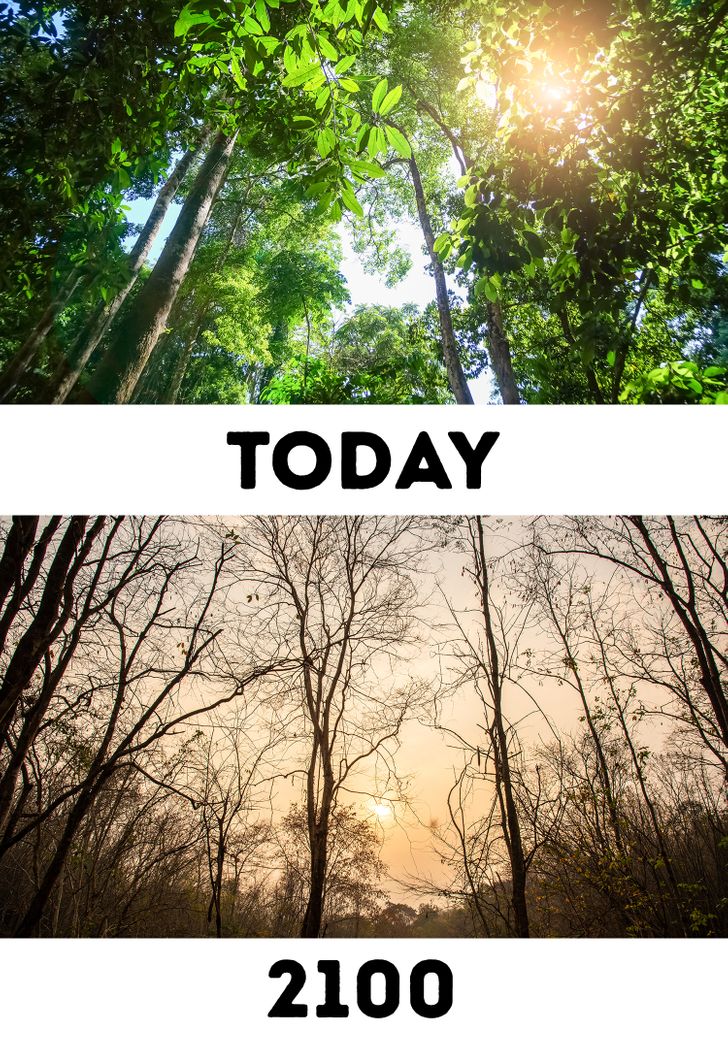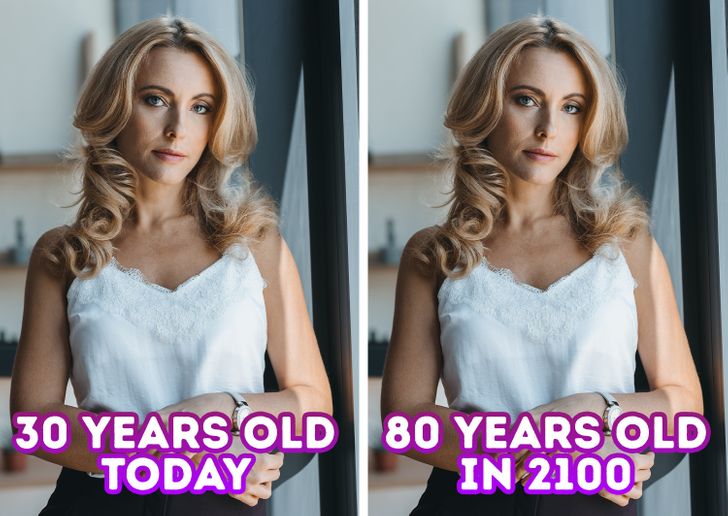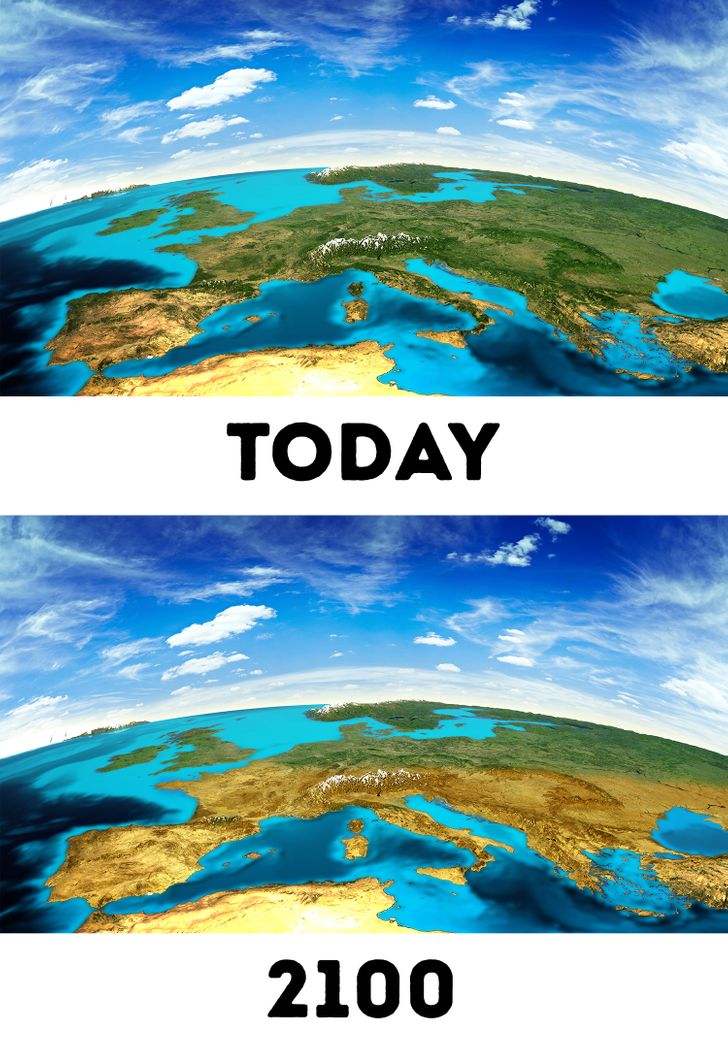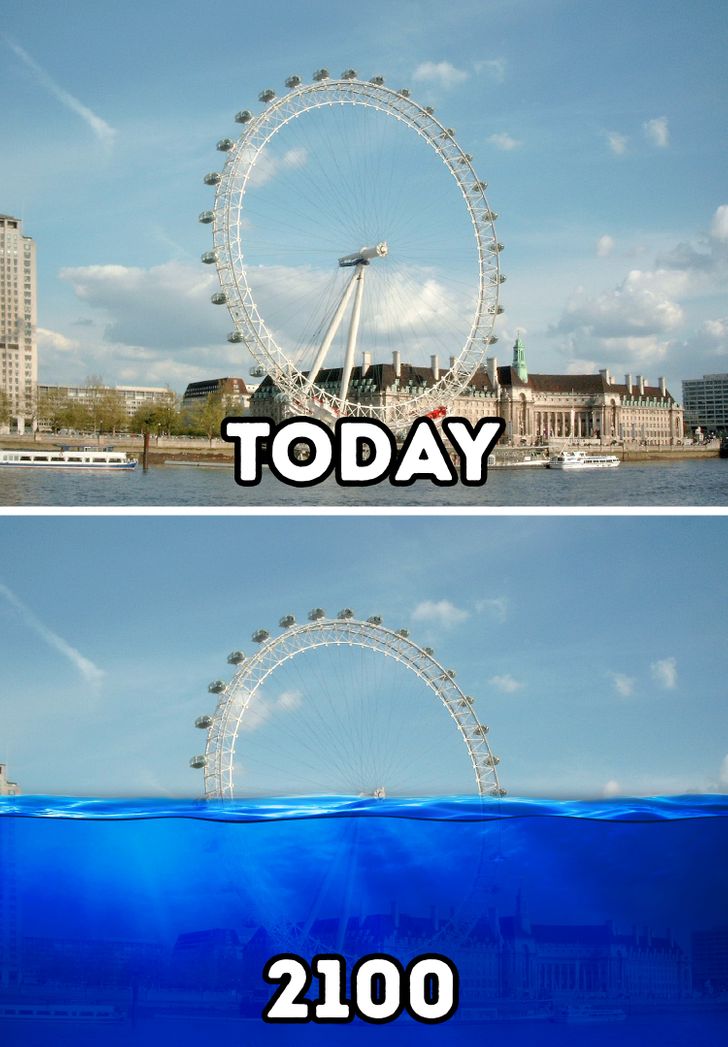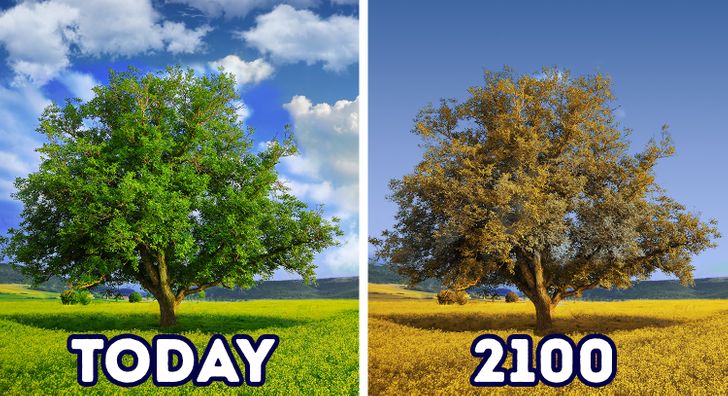this article makes me a bit nervous.. the future doesn't look too bright for the planet 😪
7 Significant Changes That May Make the World Unrecognizable by 2100

Our offspring might eventually be able to choose if they want to stop aging at age of 30, but they may not know what fluffy clouds look like. Earth’s population is growing every second, and we’ve been making so many changes to our planet that we might not recognize it by the end of 2100. It seems like people will be living in a totally different world by then.
We at Bright Side found out what might happen in the not-so-distant future and wanted to share the astonishing findings with all of you.
1. We’ll be able to travel from Berlin to New York in 3 hours.
In 2100, Europe and North America might be connected by an Atlantic tunnel. Through this tunnel, vacuum tubes will be installed so that trains will be able to pass with a top speed of 4,349 mph. Thanks to having magnetic fields and being weather-independent, the vacuum space will allow the train to travel from Berlin to New York in just 3 hours.
2. There will be no rainforests.
Already half of the rainforests in the world are wiped out, and if the rate of destruction continues, by 2100, all of them will be gone. Since 75% of life on Earth is located in rainforests, many still not discovered by humans, a lot of these beings will be gone too because there will be nowhere for them to go.
3. People might stop aging.
Even in the past, people have been on an endless search for ways to look younger for their age. But at that time, we still didn’t know why we were actually aging, which is a crucial detail to finding out how to stop it.
Today, researchers know that we age because, as time passes, errors build up at a cellular level. However, it might be possible by 2100 to have an error-correcting mechanism that will reverse the process. In fact, scientists already know about 60 genes that impact the aging process. So our grandchildren might be able to choose to stop aging after they become 30 years old.
4. 21 countries might become deserts.
Unless we find a way to keep the temperature below 2 degrees, the Mediterranean Basin will change even more than it did in the past 10,000 years. This means that forests will become scrubland and then desert. This won’t just affect southern Spain, but 20 more countries that belong in the Mediterranean Basin as well.
5. People might run out of food by 2100.
If we continue today’s eating habits, the world won’t be able to provide us with enough food by 2100. In fact, according to a Harvard sociobiologist, even if every person becomes a vegetarian, the farmland won’t be able to support 10 billion people. In addition, by 2030, food will already be difficult to afford. Some food might become 130% to 180% more expensive.
6. Sea levels may rise by as much as 8.2 feet.
A satellite started to record the rise in sea level in 1993. Since then, the sea level has risen by 6-8 inches. At this rate, by 2100, it is estimated that the levels will reach 8.2 feet. This means that many coastlines around the world will be threatened. Many things will be at risk from the rise, including bridges, roads, water supplies — the list is actually endless.
In fact, it can lead to storm surges too, as well as flooding, and even freshwater sources could be contaminated by salt water, which could affect the natural ecosystems and agricultural water supplies.
7. Our planet might enter a hothouse state.
Our offspring might not be able to enjoy some good shade under a cloud in 2100 because clouds might disappear by then. Since they reflect the sun’s rays and keep the planet cool, without clouds, the global temperature might increase by as much as 14ºF.
This means the planet will probably enter a hothouse state, meaning that the oceans could become baking hot, droughts and flash floods will increase, and the air would be CO2-fuelled. As a result, the conditions on Earth will start to become unpleasant to live in, just like it was for the creatures during the last hothouse state, 57 million years ago.
Would you like to stop aging at 30? Why? Will these changes affect the place you’re living in now? If yes, how?
Comments
I believe we are too pessimistic about it. I'm sure we will find a way to solve most of the problems
the only good thing is about aging lol
Protecting the environment is our unshirkable responsibility
This is why I never watch the news. Honestly, you can count the news stories that are NOT terrible and depressing on one finger.
Related Reads
18 Real Vacation Stories People Could Never Forget
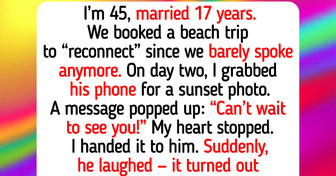
I Refused to Cook Vegan Meals for My Stepson—My Home Is Not a Restaurant

I Refuse to Give My Retirement Savings to My Adult Son—I’m Not Responsible for His Failures
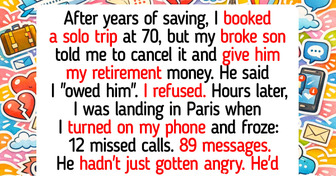
I Refuse to Drop College to Take Care of My Sick Sister, I Am Not Her Nurse
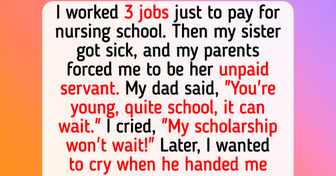
My MIL Demanded Rent for a House That Isn’t Hers, I Turned the Tables

10 Moments Where Kindness Didn’t Argue—It Acted

I Lost My Job to “Restructuring” and My Severance Disappeared, Then I Turned the Tables

I Canceled My Sister’s Free Childcare—Her Cruel Words Cost Her My Support

I Absolutely Refuse to Sell My House to Fund My Son’s Business

I Refused to Let Anyone Steal What My Dad Left Me, and My Mom Made It Worse
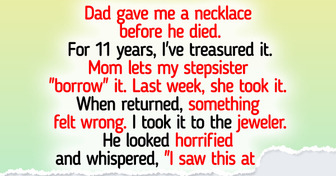
15 Stories That Prove Some Memories Are Impossible to Delete

I Refused to Babysit Under My DIL’s Rules—I’m Not “Learning” How to Be a Mom
